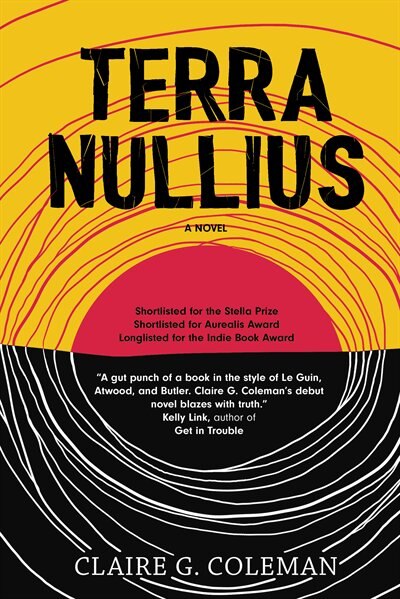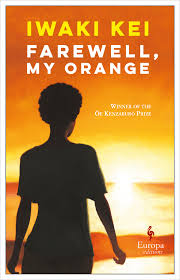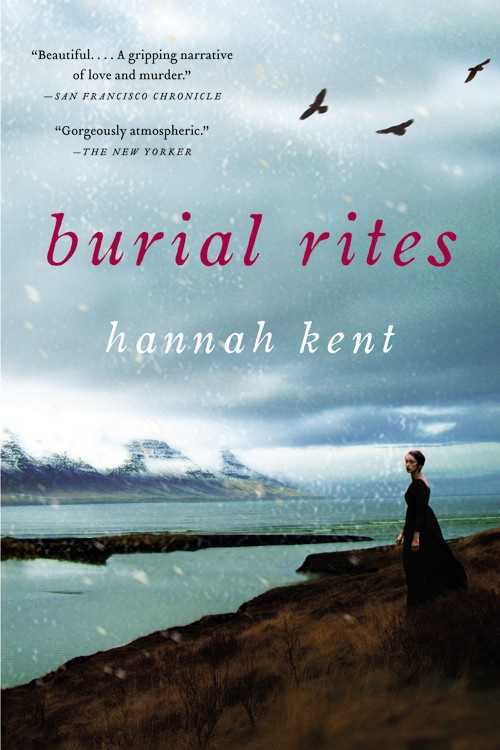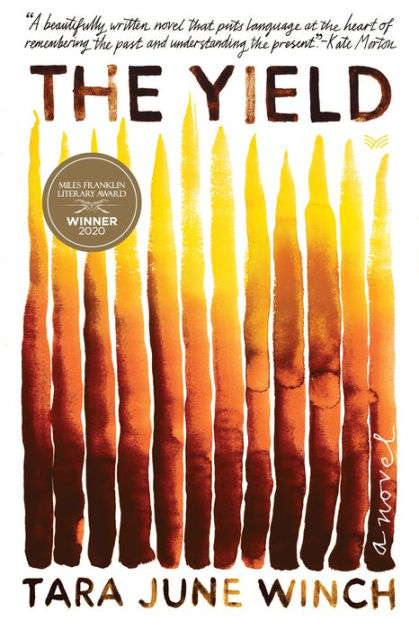Australia has produced many writers who are well-known and well-regarded internationally, including Liane Moriarty, Kate Morton, Shirley Hazzard, Colleen McCullough, Geraldine Brooks, Patrick White, Peter Carey, Richard Flanagan, Tim Winton, Marcus Zusak, and Trent Dalton. Still, there are many Australian women writers of note who should be more widely read (I’ll leave the men for another publication to write about). Each of them has gained critical respect at home and internationally, but many readers remain unfamiliar with their work.
Felicity Castagna
Felicity Castagna’s third book moved her into the forefront of Australian writers. After a well-regarded novel and story collection, 2017’s No More Boats made a big splash with its timely story of an earlier generation of immigrants closing the door on those trying to immigrate now. Antonio built a new life in the working-class western suburbs of Sydney in the late 1960s and 1970s, including raising two children whom he is proud to call Australian. No hyphenated ethnic-national identity for him! He’s a true blue fair dinkum Aussie.
Now it’s 2001, Antonio is much older, recently unemployed from a lifetime of construction work, and both Australia and his family have changed in ways that make them less recognizable — and increasingly frustrating — to him. The situation disintegrates further when the Tampa, a boat with 400 refugees, is held 15 miles offshore by the government. Antonio becomes entangled in the resulting social and political soap opera, which has been inflamed by the media (remember, Rupert Murdoch got his start in Australia).
No More Boats is a probing exploration of family life, immigration, changing cultures, and the things we do to find and keep our place in the world. It’s not surprising that it was a finalist for Australia’s prestigious Miles Franklin Literary Award and the Voss Literary Prize.
Castagna’s most recent book is Girls In Boys’ Cars (2021), which received both The Victorian and Queensland Premier’s Literary Award for YA and the CBCA Honour Book Award and is now being adapted for stage and screen.
Claire G. Coleman
Claire G. Coleman, an Indigenous writer from Western Australia, burst onto the scene in 2018 with Terra Nullius, a work of speculative fiction that told an old story in a new way. Coleman’s debut examines colonization, displacement, and racism with a fresh viewpoint and energetic, muscular prose. It’s a combination of literary fiction, historical novel, and science fiction. It was shortlisted for the 2018 Stella Prize Indie Book Awards.
She returned in 2019 with The Old Lie, a futuristic tale about five seemingly unconnected characters. Like Terra Nullius, it’s a sci-fi thriller based on Australian history. She next turned to nonfiction in Lies, Damned Lies: A Personal Exploration of the Impact of Colonisation. “This is a difficult piece to write,” she says. “It cuts closer to the bone than most of what I have written; closer to my bones, through my blood and flesh to the bones of truth and country; there is truth here, not disguised but in the open and that truth hurts.”
Last year, she returned to speculative fiction with Enclave, a dystopian allegory about the misuse of technology, authoritarianism, racism, homophobia, and greed.
Michelle de Kretser
Michelle de Kretser may well be Australia’s most acclaimed writer of the last 20 years. She has been praised by Hilary Mantel, Ursula K. Le Guin, and A.S. Byatt. In her novels, she has addressed the nature of identity (being a Sri Lankan immigrant to Australia), belonging and alienation, and captures perhaps better than anyone the challenges and conflicts inherent in the dualities of ethnicity, class, and nationality. She is famous for her acute observational skills and biting sense of humor. She sees through everyone and everything and skewers the deserving.
Her latest novel, Scary Monsters (2022), is a novel in two parts that can be read in either order (similar to Ali Smith’s How to Be Both). The structure reflects the disorientation experienced by immigrants and explores how changing countries changes the characters’ lives. Lili’s family migrated to Australia from Asia when she was a teenager. Now, in the 1980s, she’s teaching in the south of France. She makes friends, observes the treatment handed out to North African immigrants, and is creeped out by her downstairs neighbor. Lyle works for a sinister government department in near-future Australia. An Asian migrant, he fears repatriation and embraces “Australian values.” He’s also preoccupied by his ambitious wife, his wayward children, and his strong-minded elderly mother. Islam has been banned in the country, the air is smoky from a Permanent Fire Zone, and one pandemic has already run its course.
Scary Monsters was a finalist for the 2022 Kirkus Prize for Fiction and shortlisted for the 2022 Miles Franklin Literary Award in Australia and the 2023 Rathbones Folio Prize in the UK.
The Life to Come won the 2018 Miles Franklin Literary Award (her second) and the Christina Stead Prize for Fiction (her third win, tying Peter Carey), and was shortlisted for the Stella Prize (for women’s fiction). Reviews compared her to the likes of Flaubert, Jane Austen, Shirley Hazzard, and fellow Australian Patrick White. The Life to Come is not a novel in the usual sense; it’s essentially five long stories featuring different characters; the presence of an aspiring and naïve young writer named Pippa serves to connect them. De Kretser has much to say about the art of storytelling and the dangers of using real people for inspiration.
Kate Grenville came to the publishing world’s attention with her fourth novel, The Idea of Perfection, in 1999. It won the Orange Award (now the Baileys Women’s Prize for Fiction) in 2000. But her best work, and one that everyone should read, is The Secret River, published in 2006. Based on the story of her great-great-great-grandfather, who was sentenced to the penal colony in New South Wales in 1806, it tells the story of the early settlement of Australia by British convicts. The Secret River won the Commonwealth Prize, the New South Wales Premier’s Literary Award, and the NSW Premier’s Community Relations Prize. It was also short-listed for the UK’s Man Booker Prize.
If you are going to read only one book about Australia’s history and its effect on the nation’s culture, it should be The Secret River. By following British convict William Thornhill (based on her ancestor, Solomon Wiseman) as he struggles to adapt to life in what feels like another world, Grenville is able to examine the fraught history of relations between the colonists and the Aborigines who have inhabited the Australian continent for over 40,000 years. Suffice to say, their first contact is not a mutually respectful and beneficial encounter.
Grenville followed The Secret River with The Lieutenant (2008), which details the tentative and developing friendship between an officer of the First Fleet and an Aborigine girl of exceptional intelligence. In Sarah Thornhill (2011), Grenville completed this loose “early Australia” trilogy by returning to the family at the center of The Secret River, taking the subject of race relations to its logical conclusion. I recommend all three novels, but only The Secret River is required reading.
Iwaki Kei
Farewell, My Orange (2018) is a gem of a novella that should be required reading. Set in a tiny town on the Australian coast, it’s the story of two recent immigrants, Salimah, who fled Nigeria, and Sayuri, who has accompanied her husband from Japan while he completes his graduate studies. Salimah’s husband has abandoned her and their two young sons in a country where she knows no one, can barely speak the language, and is in a state of culture shock. Sayuri has postponed her own graduate studies to care for her baby daughter.
The two young women meet in an English as a Second Language class attended by students from several countries, with widely varying English skills. Over time, Sayuri begins to help Salimah with her English work. Despite their completely different life experiences, they share a shy but tenacious nature, and one of the many pleasures of Farewell, My Orange is watching them develop a friendship through a second language neither is comfortable with.
The story alternates between a close third-person narrative following Salimah and letters written by Sayuri to her professor. Salimah’s story gives us an intimate view of the immigrant experience, focusing on the key role language plays in adapting to a new country and culture. So her English class offers her a lifeline to her new home as well as the opportunity to make some friends. Sayuri’s letters are both personal and observational, giving us an almost journalistic view of her experience. Slowly, these two women, often gritting their teeth, find their way into the English language and the Australian culture. Farewell, My Orange allows the reader to experience their struggles to build a new life with a new language. And the conclusion offers a few surprises that explain some quirks of the narrative.
Hannah Kent
Burial Rites (2013) tells the story of Agnes Magnusdottir, who has been convicted of murdering two men on an isolated farm on the northwest coast of Iceland in 1829. The government in Reykjavik wants Agnes and her two co-defendants, Fridrik and Sigga, housed in the district where the crimes were committed until the Supreme Court in Copenhagen reviews the case and affirms the trial court’s judgment. They are sent to three separate farms to work until the day of execution.
Agnes is placed with the family of District Officer Jon Jonsson, who own the farm known as Kornsa, despite the Jonssons’ fierce opposition to her presence in their home. The plot of Burial Rites alternates between Agnes’s slowly evolving life at Kornsa and flashbacks to her life before the murders. She is treated in a distant but civil manner by Jonsson and his wife Margret. Over time, Agnes begins to let go of some of her anger and develops a tentative relationship with Margret and her younger daughter, Steina. Agnes’s story is far more complicated and compelling than the one presented at her trial and the reputation she has among her fellow Icelanders, who think of her as a “murderess” or even a witch.
Burial Rites is a spellbinding murder-mystery, a moving character study, and an inspired depiction of a distant time and place unknown to virtually everyone. It was shortlisted for the Women’s Prize for Fiction, the Guardian First Book Award, the Stella Prize and the International IMPAC Dublin Literary Award, among others.
Kent followed Burial Rites with The Good People (2017), another historical fiction thriller, set this time in 19th century Ireland. Nora is a widow who finds herself caring for her grandson Michael, who can neither speak nor walk. The isolated valley community believes he is a changeling who will bring everyone bad luck. Nora, her handmaid Mary, and an elderly wanderer named Nance work together to address the rumors and Michael’s predicament.
Devotion (2021) is Kent’s most recent book. Set in the 1830s, it’s the story of friends Hanne and Thea as their religious community moves to a new location in South Australia. While they build a village based on those back in Prussia, they displace the local Indigenous people. But Kent is devoted to telling a love story, with this conflict as a mere backdrop, not the primary plot. As with her first two novels, Kent excels at creating a powerful mood and sense of place, but her lyricism overflows and bogs down the love story of Hanne and Thea.
Tracey Lien
Tracey Lien’s debut novel is a compelling exploration of the immigrant experience as seen through the eyes of a first-generation Vietnamese-Australian who grew up in the refugee enclave of Cabramatta on the outskirts of southwestern Sydney.
Set in the 1990s when Cabramatta was the epicenter of a heroin epidemic, All That’s Left Unsaid follows recent college graduate Ky as she returns home from Melbourne after the murder of her younger brother Denny in what seem like the most inexplicable circumstances. When the understaffed and cynical local police fail to mount a serious investigation, Ky, a novice journalist, decides she’ll have to do it herself. Maybe people in the Vietnamese community will talk to her; after all, she’s one of them, not a white police officer, and she’s the older sister of the victim. Who could be more sympathetic?
Ky’s return home is the catalyst for an examination of the way growing up in Cabramatta influenced her and the price her parents paid as refugees trying to adapt to Australian culture. All That’s Left Unsaid is also the story of Ky’s close friendship with Minnie, who is her opposite in nearly every way. (Their relationship reminded me of Elena and Lila in My Brilliant Friend.) Watching the lives of Ky and Minnie unfold on different paths, in part because of their parents’ contrasting experiences and responses to life in Australia, was sobering. One senses that things will not turn out well without being able to predict just what will happen. The mystery of Denny’s murder will keep you turning the pages, but the closely observed and sympathetic portrayals of the key characters are what will leave a lasting impression on readers.
Joan London is from Western Australia, which features prominently in her writing. London’s first novel, Gilgamesh, published in 2001, was shortlisted for the Miles Franklin Literary Award and won The Age Book of the Year award for fiction. Internationally, it was longlisted for the Orange Prize and the International IMPAC Dublin Literary Award.
Set in the years preceding World War II, Gilgamesh follows Edith, a 17-year-old who lives with her unstable mother and difficult sister in rural Western Australia. The story is set in motion when her London-based brother Leopold and his Armenian friend Aram visit her after working on an archaeological dig in Iraq. Edith and Aram experience a powerful chemistry. Two years later, Edith boards a ship intending to go to Armenia to find Aram. She begins to build a life in Yerevan, but the war presses down upon everyone and she is forced to flee across the border into Iraq to meet Leopold, who drives her to Syria, where she waits out the war. Like the wandering King Gilgamesh, Edith’s journey takes her to many places and introduces her to a range of people, each of whom is searching for his place and purpose. London’s prose is both spare and lyrical, with a hypnotic and haunting effect.
London’s second novel, The Good Parents, was published in April 2008 and won the 2009 Christina Stead Prize for fiction in the NSW Premier’s Literary awards. London’s third novel, The Golden Age, was published in Australia in 2014 and issued in the U.S. by Europa Editions in 2016. It won the 2015 Australian Prime Minister’s Award for Fiction, the 2015 Patrick White Literary Award, and several other Australian awards, and was named a Publishers Weekly Best Book of 2016.
The Golden Age follows the Gold family, Hungarian Jews, as they flee WWII and land in Perth, Australia. Thirteen-year-old Frank is struck with polio and is sent for treatment to The Golden Age children’s hospital. Frank battles the dread disease that terrified people in the 1940s and 1950s, at the same time falling in love with a fellow patient, Elsa. It’s a classic coming-of-age story set in a polio ward. We also observe the lives of Frank’s parents as they cope with the drastically different world of 1950s Perth, his father driving a truck and slowly becoming an Australian and his mother, a famous concert pianist in Hungary, stubbornly refusing to assimilate. London tells a moving story in crisp but lyrical prose and it makes for a very satisfying read.
Heather Rose
After a trilogy of award-winning novels set in her native Tasmania, Heather Rose shifted gears drastically with The Museum of Modern Love, set in the modern art world of New York City. At home, it won the 2017 Stella Prize for best book (fiction or nonfiction) by a woman and the Christina Stead Prize for Fiction. In the U.S., it received starred reviews in Booklist, Library Journal, and Publishers Weekly.
Bruny (2019), which won Best General Fiction in the 2020 Australian Book Industry Awards, is a novel you can really sink your teeth into. Bruny Island is just off the coast of Tasmania and is only accessible by boat and the car ferry. The government has decided to build a massive bridge, longer than the Brooklyn Bridge, to connect the isolated island to Tasmania. Naturally, there is fierce opposition to this infrastructure project which will change life on Bruny forever. Astrid Coleman is a conflict resolution specialist for the UN who has returned home to Tasmania help her brother, the premier (governor) of Tasmania, calm the warring factions. Their sister is the leader of the opposition. Astrid finds herself caught between the advocates for progress and those who favor maintaining the special nature of Bruny Island – and, perhaps more dauntingly, between her brother and sister.
Rose’s most recent book is Nothing Bad Ever Happens Here: A Memoir of Loss and Discovery (2022).
Tara June Winch
Tara June Winch belongs to the Wiradjuri people of central New South Wales. The Yield (2019) received Australia’s highest accolade, the Miles Franklin Literary Award, as well as the 2020 Voss Literary Prize, the Prime Minister’s Literary Award, Book of the Year at the NSW Premier’s Literary Awards, the Christina Stead Prize for Fiction, and the People’s Choice award.
Weaving together three narrative strands, Winch tells the heartbreaking story of the attempted genocide of Aboriginal Australians, first by British colonizers and then by Australians in the 20th century, followed by government policies and a national culture that has marginalized Indigenous people. The heart of The Yield concerns August Gondiwindi, who is living in self-imposed exile in England when she learns that her grandfather Albert, who raised her, has died. Twenty years after her sister Jedda’s disappearance when she was 10, August returns to the western New South Wales farming town of Massacre Plains for Poppy Albert’s funeral. In doing so, she is forced to confront the consequences of the racism and poverty of her childhood, complicated relationships with her extended family, and the oppressive cultural and economic limitations of rural Australia. To say it is a bittersweet homecoming is an understatement.
August soon learns that a huge mining company has purchased the land on which her family lived. The land technically belonged to the government, which had leased it out for generations to the wealthy farming family who lived up the hill from the humble Prosperous House, where Albert and Elsie Gondiwindi had raised their children and grandchildren, and which served as the clan’s home base. August was close to her grandfather, and her homecoming has reconnected her to the land. His loss and the discovery that he was working on a book — which she cannot find anywhere — inspire her to try to save Prosperous House for her grandmother and relatives. But how do you stop a huge corporation operating with the government’s support? August needs to find a way to prove that the land is significant and should be protected. That is the compelling central conflict of the contemporary plot line.
Charlotte Wood
Charlotte Wood reminds me a bit of Jane Smiley in the way that she can do virtually anything. Her must-read novel, The Natural Way of Things (2016), is set in the near future but is nevertheless a story for these times. It is in the narrowest sense a dystopian novel, in that it describes a circumstance that does not yet exist but that requires very little suspension of disbelief to accept. It is this close to being plausible. The Natural Way of Things made a big impression in Australia, where it was awarded the 2016 Stella Prize as the best novel by an Australian woman.
This tale of young women imprisoned on an abandoned Outback sheep station for the impact of their sexual escapades on men of means explores the contemporary landscape of widespread misogyny, in which victims of rape and sexual assault are put on trial in the media and in the courtroom. It is a world where people seem more fully engaged on social media than in their actual lives and where faceless corporations are an inextricable part of our lives, often knowing more about us than we could imagine. But resentment of the gender double standard has reached critical mass and women are fighting back.
Wood’s prose has a spare, poetic quality that matches the austere beauty of the Australian bush setting. One can feel the blazing heat, see the dust in the air, and hear the oppressive silence from the isolation. In The Natural Way of Things, Wood has created a world that is equal parts Mad Max: Fury Road and The Handmaid’s Tale.
In Wood’s most recent novel, The Weekend (2019), three women in their seventies reunite for one last weekend in the beach house of their late friend. The Weekend explores growing old and growing up, and what happens when circumstances force us to uncover the lies we tell ourselves.
Evie Wyld‘s 2020 novel, The Bass Rock, won the 2021 Stella Prize for its depiction of the lives of three women across centuries. Sarah, accused of being a witch, is fleeing for her life. Ruth, in the aftermath of World War II, is navigating a new marriage and the strange waters of the local community. Six decades later, Viv, still mourning the death of her father, is cataloging Ruth’s belongings in Ruth’s now-empty house.
As each woman’s story unfolds, it becomes clear that their choices are circumscribed, in ways big and small, by the men who seek to control them. Through their bonds with other women, they manage to create a new way of life. The Bass Rock is a powerful indictment of violence against women.
Wyld’s second novel, All the Birds, Singing, was published in 2013 to international acclaim (she had previously been named to Granta’s Best of Young British Novelists in 2008). Jake Whyte is a young Australian woman living with her dog and a flock of sheep on an isolated English island. When her sheep are killed one by one, mysterious events occur, and strangers appear, Jake is forced to confront her past, which she thought she had securely left behind halfway around the world in Australia.
Wyld is a master of mood, using a methodical pace and distinctive diction and syntax to create an often ominous or foreboding atmosphere that makes her novels feel like very artsy and literary mysteries.











